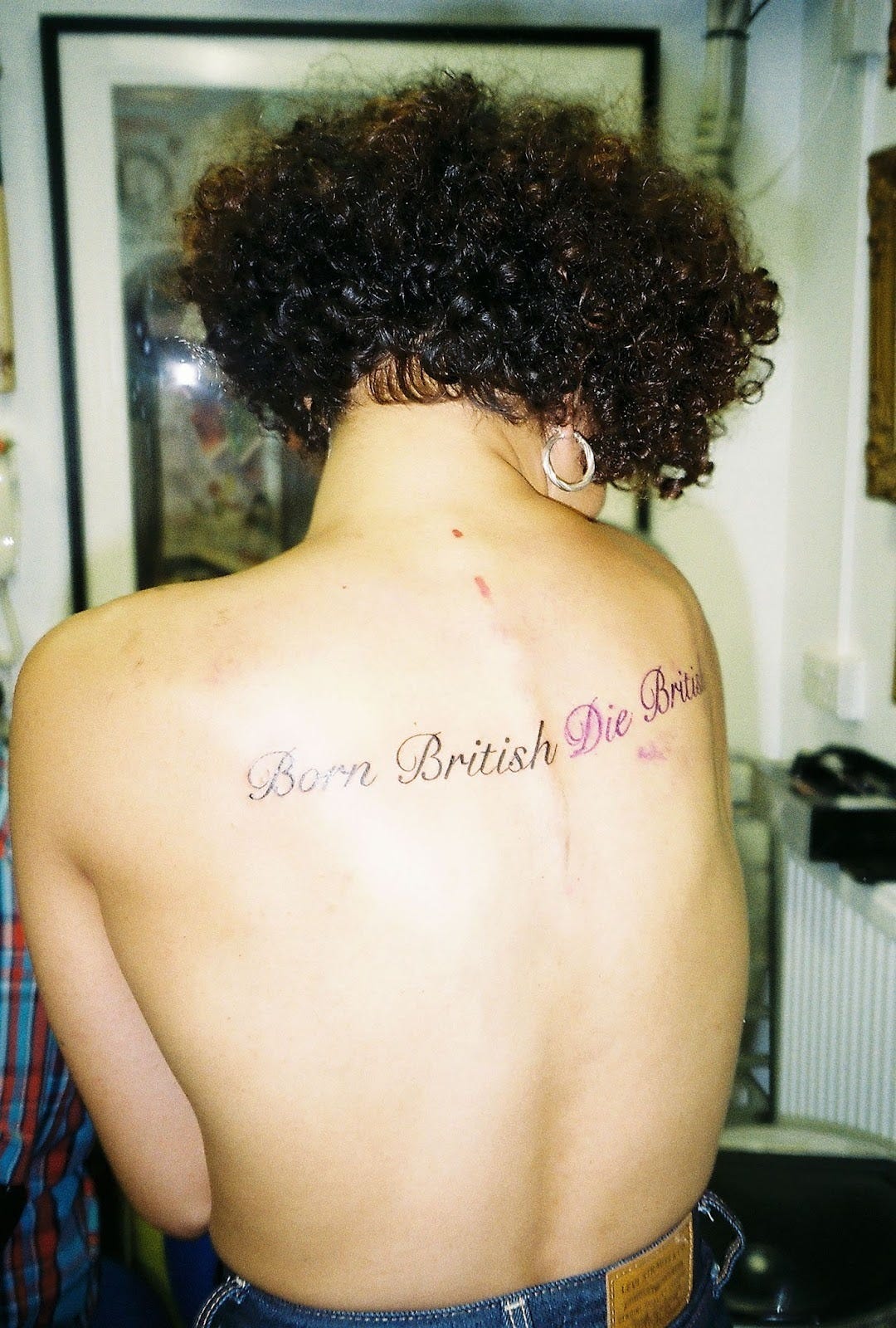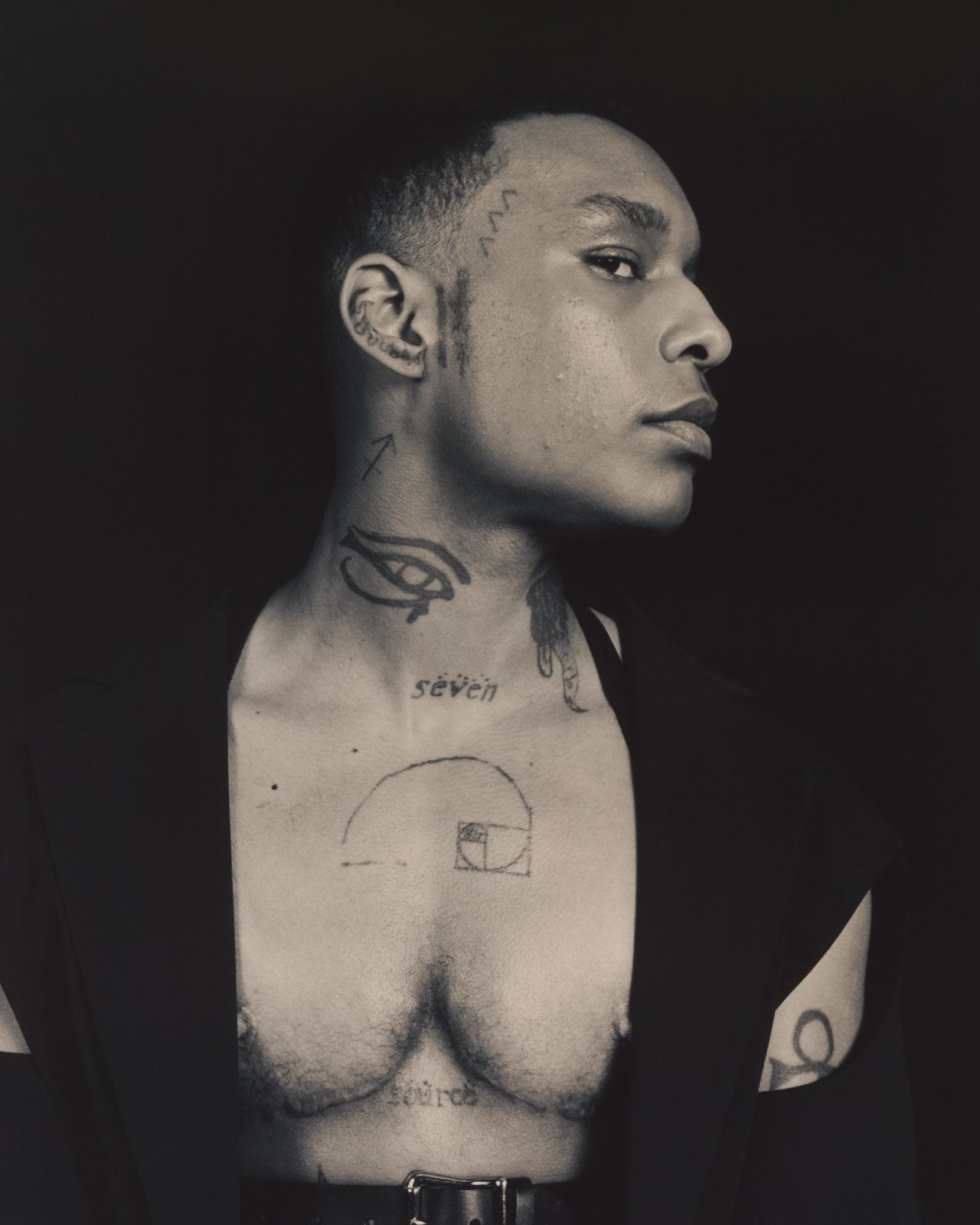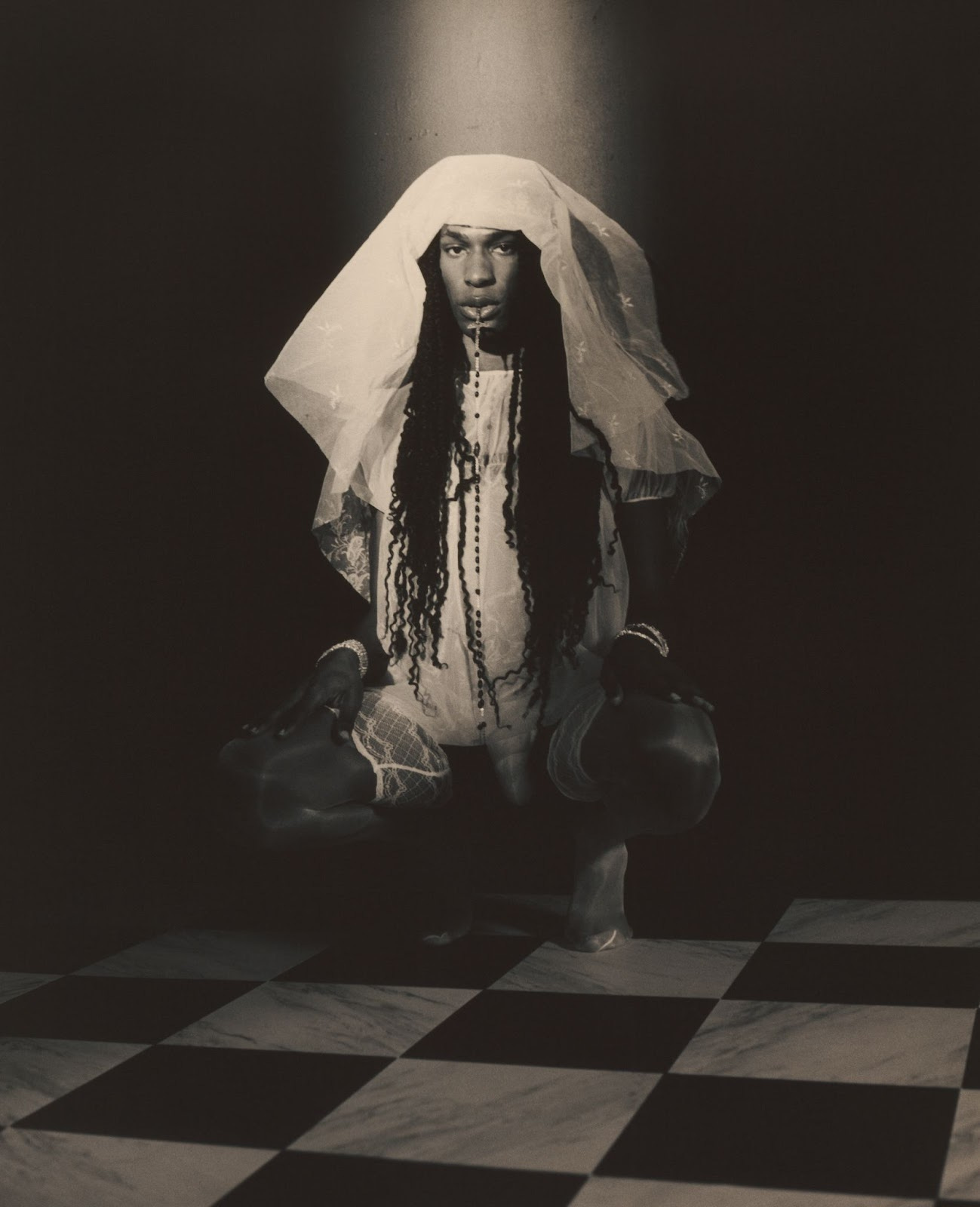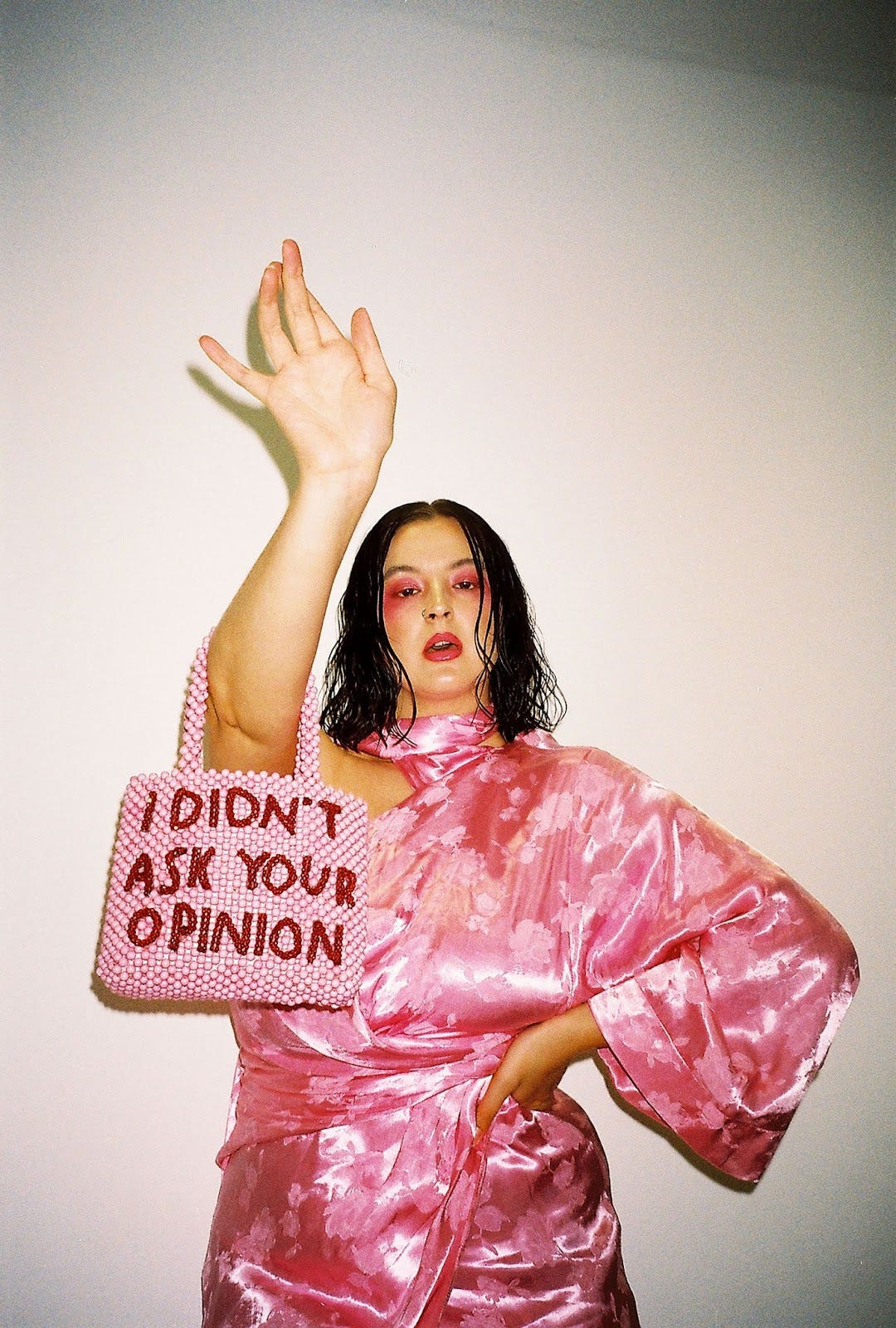Comfort=Death
How to find hope and resilience while navigating the art world’s rising censorship.
MØRNING. It's October, which means the MØRNING People Fund is back with its last round of funding for 2024. If you're new here, MPF is a quarterly fund for artists, creatives, dreamers and innovators, in short, those who are making boundary-pushing work that keeps culture alive. Click here for all the juice.
When we launched the fund in 2021, our mission was to reward the creatives brave enough to make bold moves. We wanted to build a safe home for projects that sit on the fringes because it's this work that plays a vital role in bringing us together and making our world less shit. This week, writer and MØRNING brand director Gem Fletcher is here with three inimitable artists, Rene Matić, Sheida Soleimani and Quil Lemons, to talk about the art world's rising censorship and how to find hope and resilience through the struggle.
Let's be honest: The art world is a toxic space, but many of us still attempt to stumble our way through it, vehemently holding onto the belief that art has the power to create change or, at the very least, bring us closer together. Tensions are higher this year in a way I've never experienced in my double-digit service as a cultural worker, much of it born from the changing climate of censorship.
Over the last 12 months, we’ve seen an unprecedented amount of cancelled exhibitions and events, a string of firings and resignations, ostracized artists and the expulsion of artworks. Amongst the ever-growing content warnings, shadow banning and artworks hidden behind curtains (seriously!), upholding free expression in the arts feels more fraught than ever, particularly if your work addresses trans rights, conflict and reproductive autonomy.
Let's take a step back. Censorship in the arts is nothing new (hello, the plight of Egon Schiele, Robert Mapplethorpe, Renée Cox, etc.), but right now, we find ourselves in a sticky confluence of art being used as a political pawn. It's another cultural battlefield in which politics can play a role. In the latest issue of Art in America, journalist Maddie Klett explains, "Censorship is happening on both ends of an increasingly polarized spectrum." Charting the rise of everything from banning education on the right and cancel-culture on the left. In the piece, Klett's call to action is for institutions to find more creative ways to respond to critique and controversy rather than a knee-jerk erase and ignore.
As censorship steadily increases, so has the number of creatives turning to their practice as an outlet for their politics. Across the industry, not just in the art world, creatives are channeling their despair at the state of the world through their work in an effort to do their part in creating or building upon the discourse around key issues. While creatives are nervous about the professional consequences of making work at the intersection of art and social change, many felt it was riskier to stay silent than speak up.
So, what does this all mean for the next generation of artists? Yes, we're living in a broken system, but that doesn't mean we can't fix it. The first point of call? Understanding the landscape and creating space for knowledge sharing around the issues. My gut said to call a friend, so I called three.
Gem Fletcher: We've seen a lot of shows get cancelled, editors and curators leave, or be pushed out of their roles this year due to their politics. Are you feeling it? Is it something you think about or actively have to move through to make your work? What's your view on censorship in the arts right now?
Sheida Soleimani: It's terrifying to see so many cultural institutions which claim to be beacons for freedom of speech stifling artists' views, opinions, and works. Although this isn't new, and we've seen it happen repeatedly throughout history, we hope that maybe 'this time things will be different'. They most certainly are not. I think it's important to be unapologetic and clear about your views and why you stand behind them. I have been thinking a lot about the public posting of opinions, which gets many individuals in our community censored. The surveillance culture that happens is truly terrifying, but once again, not surprising.
Rene Matić: I think UK censorship is no different from the rest of the world. I have always felt it/ experienced it in all aspects of my life! It's a constant fire that needs to be put out. A spirit that needs to be diminished. Negotiating it is a game. One I wish I didn't have to play, but one, I will make sure I am better than my opponent. You can get very good at being deceitful and coded and naughty.
Quil Lemons: Censorship is an interesting one because, in America, where we have the right to free speech, it sometimes feels like my country is bordering on fascism under the guise of political correctness. We are in a period of global unrest, and to have an uncensored opinion, no matter what industry you work in, in this world requires a large amount of capital to have a free thought that you can voice in a public space. That's really fucking scary to me.
Sheida Soleimani: I would add that I do think that there is an expectation to emblazon your social media with your political views, aggressively post opinions in your stories etc…this type of activism is often lost on me. By barraging individuals with photojournalistic trauma porn, we hope that they will realize the reality of what is happening, but on the contrary, many scroll past these awful photos, ignoring them, and they get lost in a place they shouldn't be:overlooked and left behind. We can hope to make changes through having conversations, whether they be with institutions, friends, or community members. Regardless of how you approach discussing things, I believe the issues of our time should always come into our work.
GF: It feels pertinent that a speech by Toni Morrison from 2016, where she talks about "art being a dangerous pursuit", was getting recirculated on IG last week. In the clip, she says, "The history of art has always been bloody because people who want to control and deceive know exactly the people who will disturb their plans. And those people are artists. It's a dangerous pursuit." Does that resonate for you in 2024?
SS: One thousand per cent. Being an artist in itself is a political choice, but bringing political content into one's work puts them at risk for so much,whether it be censorship, loss of one's job, imprisonment, and sometimes even death. It's a choice we make when deciding how far to go and how far to push the important conversations.
RM: It depends on why you're pursuing it. It is the relationship I have with myself. That is what I am pursuing. It is the opposite of danger to me. I have had these things thrust upon me, and in order to understand them, grab hold of them, control them, I go in search of my energy. My autonomy. My motivation to tell these stories.
QL: Toni Morisson is right. Art is a dangerous pursuit because we live in a world that's surrounded by patriarchy, and I think art is a very feminine thing. It's so divine, so femme, so brown, so other. Everything created around us is so male, so patriarchal. Art completely goes against that. You are targeted if you are attached to anything femme - and I mean that in the true meaning of the word - because it challenges that order!
What's one piece of advice you would give young artists who are feeling despair at the state of the world and turning to their work as an outlet for their politics?
SS: I always refer to my baba's motto: comfort = death. Comfort is a privilege, and while everyone should be allowed to generate change and create conversations, we cannot rest within the bounds of the comfortable.
QL: I would tell any young artist to play We Gonna Make It by Jadakiss. Don't be nervous; just do the things you have to do to protect yourself and keep figuring out ways to spread the message without endangering your safety.
RM: Turn to the work is always my advice. It won't be honest if you're thinking about your career when making work. You must be honest and uncompromising when making. It might not be your career, but it will be all yours. And that is special and rare.
That's all for today. Strength and solidarity to all you creative souls out there. Don't forget: If you or a friend have a project that aims to advance culture, apply for the MØRNING People Fund here. Until next time!
Words by Gem Fletcher. Cover image via Rene Matić. Brought to you by @morning.fyi.













Comfort = death fr. Art has always been about shaking things up, but seeing the game get even messier is wild. Respect to the artists still pushing through—y'all are the culture keepers. 🔥